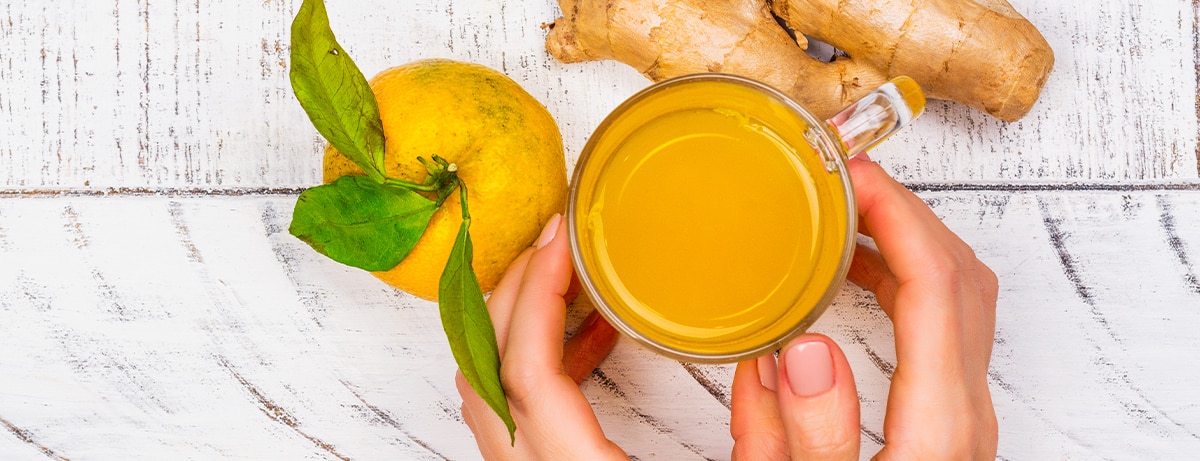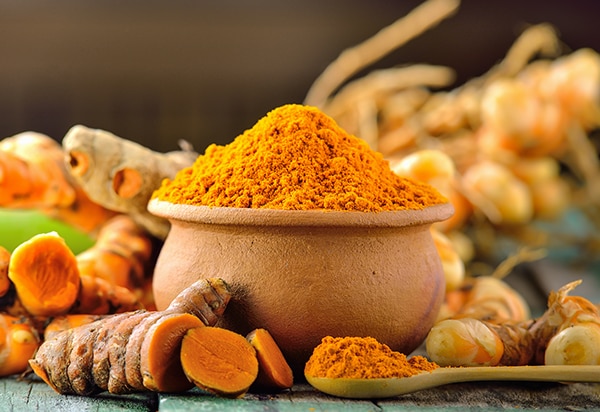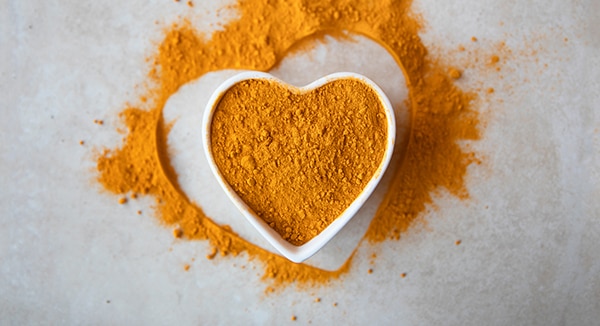10% off £35
Too much turmeric? Turmeric side effects

What does turmeric do?
Before we delve into the details of what too much turmeric can look like, what does it actually do? Having been used in traditional medicine for hundreds of years, turmeric is said to help with a wide range of health concerns, from skin sensitivities to joint issues.
Sound like something you want to learn more about? Find out benefits of turmeric from our guide.
Are there effects of too much turmeric?
Turmeric and curcumin supplements are generally considered to be safe to take with minimal to no side effects.1 However, when taken in large doses, it may have some unpleasant side effects.
9 turmeric side effects
What are the side effects of turmeric?
Although turmeric provides multiple health-related and wider benefits, there are also some potential turmeric side effects if you take too much. These can include:


- May lead to digestive issues
As well as supporting digestive health, turmeric can cause irritation when consumed in large amounts.
This is due to the fact turmeric stimulates the stomach to produce more gastric acid.2 While this helps some people’s digestion, this isn’t the case for everybody.
What's more, a high dose of curcumin (the active ingredient in turmeric) may cause diarrhoea and yellow stools when taken in high doses.3
- May cause blood thinning
Turmeric’s purifying properties may potentially also make you bleed more easily, as it can have an anticoagulation effect. So taking it with blood-thinning medication such as warfarin or aspirin may cause excessive bleeding – so please speak to your GP before taking any supplements.2
- May have an effect on PMS symptoms
One study in particular has found its curcumin content can potentially help manage some of the symptoms of Premenstrual Syndrome (PMS).4
- May have an effect on kidneys
Turmeric contains something called oxalate. This means that when it is taken in large doses, it may contribute to kidney stones for people who are already at risk.5
- May contain gluten
Some turmeric supplements might use a wheat based filler in them, so people who are sensitive to gluten should double check the ingredients list and make sure to buy from a reputable seller.
- May cause headaches and nausea
When taking curcumin supplements specifically, you may experience side effects like headaches and nausea. However, this has only been reported with doses of 450mg or higher.6,7
- May interact with some medications
Another one of the main curcumin side effects is that it may interact with some types of medication. Some scientific studies have found that it may interfere with antibiotics, anticoagulants, antidepressants, antihistamines, cardiovascular drugs and chemotherapeutic agents.8,9
- May cause staining on skin
Wondering about side effects of turmeric on face skin? If you use it in your skincare, you may be interested to know that it could leave a slightly yellow hue on your skin, especially if you use it in large amounts.
- May cause a skin reaction
If you’re allergic to turmeric and you use it on your skin, you might experience allergic contact dermatitis, swelling, redness and itching.10 So to avoid this, it is recommended to complete a patch test before using it on your skin.
The final say
There are some side effects of taking too much turmeric, such as stomach irritation and digestive issues, potentially making you bleed more easily, skin reactions and more. So to be on the safe side, always speak to your GP first before taking turmeric supplements.


The advice in this article is for information only and should not replace medical care. Please check with your GP or healthcare professional before trying any supplements, treatments or remedies. Food supplements must not be used as a substitute for a varied and balanced diet and a healthy lifestyle.
- https://pubmed.ncbi.nlm.nih.gov/30632782/
- https://pubmed.ncbi.nlm.nih.gov/33041781/
- https://www.ncbi.nlm.nih.gov/pmc/articles/PMC5664031/
- https://pubmed.ncbi.nlm.nih.gov/26051565/
- https://pubmed.ncbi.nlm.nih.gov/18469248/
- https://pubmed.ncbi.nlm.nih.gov/31590362/
- https://www.ncbi.nlm.nih.gov/pubmed/16545122
- https://pubmed.ncbi.nlm.nih.gov/28734960/
- https://pubmed.ncbi.nlm.nih.gov/35011087/
- https://www.sps.nhs.uk/articles/advising-patients-using-turmeric-on-its-adverse-effects/














